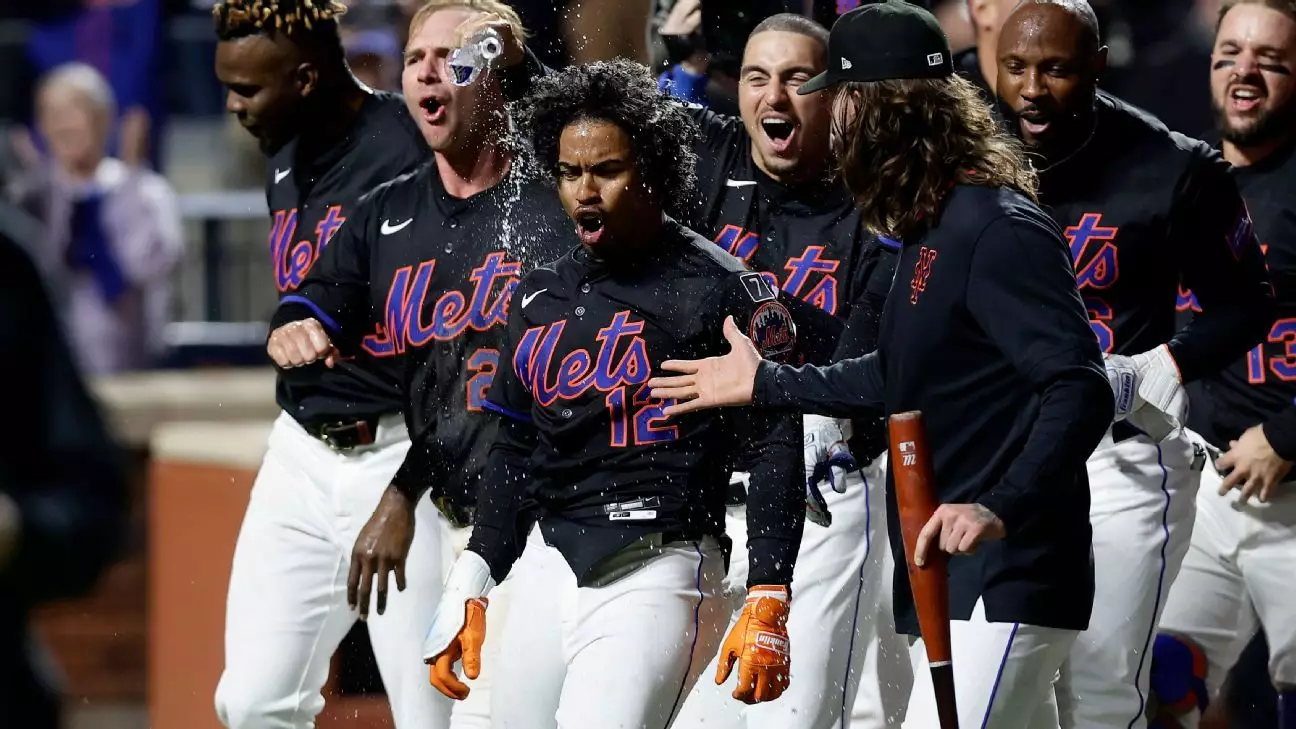Francisco Lindor’s early-season slump left the baseball world buzzing with questions about his performance and ability to bounce back from a dismal start. After going 0-for-11, doubts loomed large, not only for Lindor but also for fans and analysts who were well aware of his history with slow starts. A poignant moment occurred when Lindor, confronted with these early struggles, reflected candidly, admitting he didn’t have the answers. “That’s a fantastic question,” he said, embodying both vulnerability and authenticity.
This honesty highlights a critical theme in professional sports: the psychological pressure on athletes to perform. Lindor’s admission speaks to the collective anxiety that many players experience under the weight of expectations—both from others and themselves. This reflective moment set the stage for his eventual turnaround, underscoring the importance of support and mental clarity in overcoming adversity.
The Catalyst for Change: Communication and Trust
It was the intervention from the Mets’ hitting coach, Jeremy Barnes, that served as a catalyst for Lindor’s remarkable transformation. Rather than inundate him with complex strategies or technical adjustments, Barnes emphasized simplicity: stick to the plan and trust oneself. This no-nonsense approach resonated with Lindor, who embraced the coaching advice, shifting his focus from chasing short-term results to trusting the preparation that had brought him success in the past.
The philosophy of embracing one’s innate abilities while disregarding external noise is paramount in sports. Barnes’ guidance fostered a sense of freedom in Lindor, allowing him to concentrate on his strengths. The decision to focus on execution rather than outcomes can be applied universally, whether in sports or life—encouraging a mindset that prioritizes effort over results, ultimately leading to success.
Consistent Performance Amidst Team Dynamics
What followed Lindor’s renaissance was nothing short of spectacular. Emerging from his struggles, he turned in an impressive performance that not only elevated his statistics but also galvanized his team. Lindor’s exceptional .349 batting average, coupled with five home runs during a stretch where the Mets boasted the best record in Major League Baseball, illustrated his ability to rise to the occasion.
While Lindor flourished at the plate, the significance of team dynamics also cannot be overstated. With new superstar teammate Juan Soto struggling, Lindor stepped up to fill the void. His relentless energy and strong offensive contributions during a recent 7-0 homestand signal a resurgence for both him and the Mets. The power of positive relationships and collaborative achievements within a sports team is essential—Lindor’s example serves as a reminder that personal success often stems from a collective environment where everyone is invested in each other’s performance.
The Impact of Culture on Performance
Lindor’s ascent parallels a broader cultural revival within the Mets organization. After weathering a tumultuous previous season, Lindor’s leadership has become a vital force. His actions—organizing meetings and bringing energy to the clubhouse—highlight the importance of fostering a supportive culture where players can thrive. The shift from negativity to a positive atmosphere resonates through Lindor’s narrative, adding depth to our understanding of how culture influences performance.
His anecdote about switching his walk-up song to The Temptations’ “My Girl” illustrates this cultural shift. What was once met with jeers transformed into cheerful sing-alongs at Citi Field, reflecting the evolving relationship between players and fans. Lindor’s choices indicate not just an embrace of his identity but also an effort to enhance the collective mood among fans and teammates alike.
Embracing the Moment and Looking Forward
As Lindor continues to emerge as one of baseball’s premier talents, it is clear that the momentum he has gained is rooted in a fundamental shift in mindset. With an impressive OPS and exceptional performance against fastballs, he is clearly proving to be not just another player but an invaluable asset to his team. The early struggles have faded, replaced by a clear focus on execution and personal growth, reminding us all that overcoming obstacles is often a stepping stone toward greatness.
Moreover, the relationship between Lindor and his coaches, coupled with the collaborative spirit of the team, creates an environment ripe for sustained success. Lindor’s journey underscores a critical lesson: that embracing both the challenges and the victories is essential for true growth. It is a testament to the power of resilience and trust—both in oneself and in those around you.

